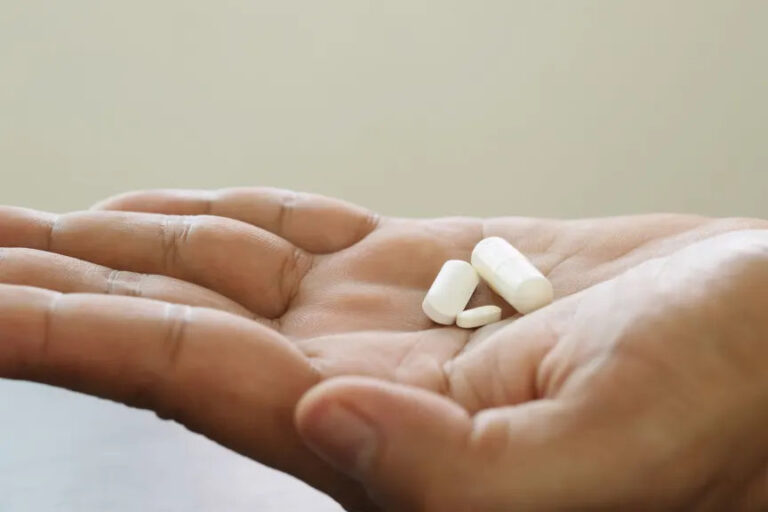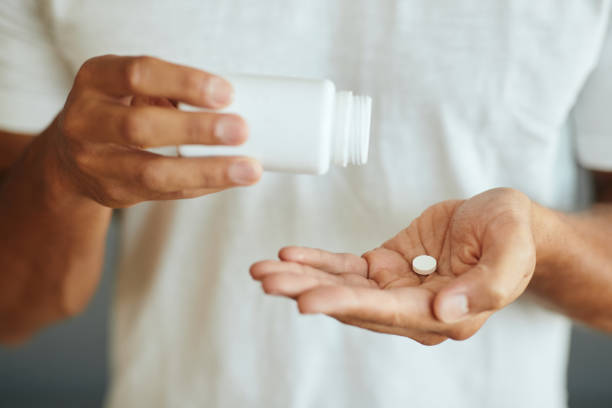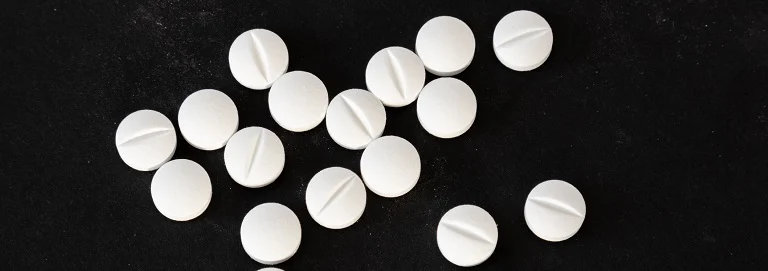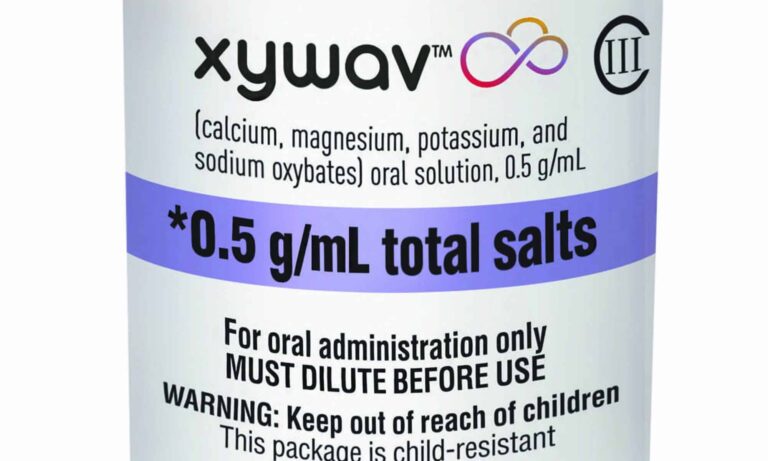Will Taking Modafinil Make You Fail a Drug Test?
Modafinil is a prescription medicine for excessive daytime sleepiness related to narcolepsy, obstructive sleep apnea, and shift work disorder. It is also used off label by some people who want to stay alert. A common worry is whether modafinil will make you fail a drug test. The short answer is that standard workplace panels do not look for modafinil, and it does not usually trigger false positives. Specialized tests can detect it when they are ordered to do so.
What do standard drug tests look for?
Most routine workplace or employment tests use urine immunoassays that screen for the classic set of drugs such as amphetamines, cannabinoids, cocaine, opiates, and phencyclidine. Many panels add benzodiazepines and barbiturates. Modafinil is not part of these standard panels, so it is not checked unless a custom test is ordered (McNeil et al., 2023; Hadland & Levy, 2016).
Immunoassays are quick and inexpensive. They report a presumptive positive or negative result at preset cutoff concentrations. Results that matter for employment or legal action should be confirmed with a definitive test such as gas chromatography mass spectrometry or liquid chromatography tandem mass spectrometry to avoid errors (Moeller, Kissack, Atayee, & Lee, 2017).
How is modafinil detected when labs look for it?
Modafinil, adrafinil, and the major metabolite modafinilic acid can be detected and distinguished with liquid chromatography tandem mass spectrometry. Gas chromatography alone may not separate adrafinil and modafinil without specific methods, so labs use liquid chromatography tandem mass spectrometry for confirmation when these drugs are of interest. Anti-doping and some forensic or clinical labs use these approaches when a request specifies modafinil testing (Dubey et al., 2009; Moeller et al., 2017).
How long can modafinil be detected?
The detection window depends on the matrix, dose, timing, and individual metabolism.
- Urine: Modafinil has a mean elimination half life of about 15 hours. About 80 percent of a dose is recovered in urine as metabolites. These properties support a urine detection window that is typically about 24 to 72 hours after use, with variability by person and dose (U.S. Food and Drug Administration, 2015; Greenblatt & Adams, 2023).
- Blood: Blood tests have shorter windows than urine, often within a day, and are used mainly in clinical or emergency settings rather than routine screens (McNeil et al., 2023).
- Hair: Hair testing can reflect exposure over weeks to months, but modafinil is rarely included in routine hair panels. Detection requires a targeted request and specialized methods (McNeil et al., 2023).
These are estimates. Hydration, urine concentration, liver function, and timing all influence results (Moeller et al., 2017).
Will modafinil trigger a false positive on a standard test?
False positives come from cross reactivity in immunoassays. The common workplace immunoassays are designed to detect classes like amphetamines, not modafinil. Modafinil is pharmacologically and structurally distinct from amphetamines, and standard assays do not target it. When a definitive method is used, the lab identifies specific compounds, which prevents misclassification (Moeller et al., 2017; McNeil et al., 2023).
By contrast, false negatives can occur in general drug testing when a sample is diluted or adulterated. Household and commercial adulterants can interfere with immunoassays and even reduce detection on confirmatory tests in some cases. Labs use specimen validity checks to detect this behavior (Moeller et al., 2017; Hadland & Levy, 2016).
When would modafinil be tested specifically?
- Professional sports: The World Anti-Doping Agency lists modafinil as prohibited. Sports testing programs use targeted methods to look for it (Dubey et al., 2009).
- Military, aviation, and safety sensitive roles: Some programs may use expanded or custom panels.
- Forensic or clinical investigations: A clinician or investigator can order targeted testing when modafinil exposure is relevant.
If you are in any of these settings, assume modafinil may be tested for and plan accordingly.
What should you do if you have a prescription and need a drug test?
- Disclose your prescription before the test, and bring the bottle or a letter from your prescriber.
- List the exact medicine and dose on the intake form.
- If a screen is unexpectedly positive, request confirmatory testing with gas chromatography mass spectrometry or liquid chromatography tandem mass spectrometry.
- Ask what the panel includes if you are in a high scrutiny environment such as athletics or aviation (Moeller et al., 2017; McNeil et al., 2023).
What are the approved uses and key safety notes?
- Approved uses: Narcolepsy, shift work disorder, and residual sleepiness in obstructive sleep apnea as an adjunct to airway therapy (U.S. Food and Drug Administration, 2015).
- Scheduling: Schedule IV controlled substance in the United States (U.S. Food and Drug Administration, 2015).
- Common side effects: Headache, nausea, decreased appetite, anxiety, and insomnia (U.S. Food and Drug Administration, 2015; Greenblatt & Adams, 2023).
- Serious warnings: Rare severe rash, hypersensitivity, and psychiatric symptoms. Stop the drug and seek care if serious reactions occur (U.S. Food and Drug Administration, 2015).
Bottom line
Routine workplace drug tests do not look for modafinil, and it does not usually cause false positives. Specialized laboratories can detect it when asked. If you use modafinil with a prescription, disclose it before testing and keep documentation with you. If your work or sport involves targeted testing, be aware that modafinil can be included.
FAQs
Does modafinil show up on a 5 panel or 10 panel urine test?
No. Standard immunoassay panels do not include modafinil. Only a custom or expanded test that targets modafinil will detect it (McNeil et al., 2023; Hadland & Levy, 2016).
How long after taking modafinil could a urine test find it?
Most often about one to three days, depending on dose, timing, and your metabolism. This estimate follows from its 15 hour half life and urinary excretion of metabolites (U.S. Food and Drug Administration, 2015; Greenblatt & Adams, 2023).
Can modafinil be mistaken for an amphetamine on a quick screen?
That is unlikely. Routine immunoassays are built to detect amphetamine class compounds and do not target modafinil. Definitive testing identifies the exact compound if needed (Moeller et al., 2017).
What if I take modafinil for shift work disorder and have a random test?
Tell the tester about your prescription, list it on the form, and bring proof. If any issue arises, ask for confirmatory gas chromatography mass spectrometry or liquid chromatography tandem mass spectrometry (Moeller et al., 2017; McNeil et al., 2023).
References
- Dubey, S., Ahi, S., Reddy, I. M., Kaur, T., Beotra, A., & Jain, S. (2009). A novel study of screening and confirmation of modafinil, adrafinil and their metabolite modafinilic acid under EI-GC-MS and ESI-LC-MS-MS ionization. Indian Journal of Pharmacology, 41(6), 278–283. https://doi.org/10.4103/0253-7613.59928
- Greenblatt, K., & Adams, N. (2023, February 6). Modafinil. In StatPearls [Internet]. StatPearls Publishing. https://www.ncbi.nlm.nih.gov/books/NBK531476/
- Hadland, S. E., & Levy, S. (2016). Objective testing: Urine and other drug tests. Child and Adolescent Psychiatric Clinics of North America, 25(3), 549–565. https://doi.org/10.1016/j.chc.2016.02.005
- McNeil, S. E., Chen, R. J., & Cogburn, M. (2023, July 29). Drug testing. In StatPearls [Internet]. StatPearls Publishing. https://www.ncbi.nlm.nih.gov/books/NBK459334/
- Moeller, K. E., Kissack, J. C., Atayee, R. S., & Lee, K. C. (2017). Clinical interpretation of urine drug tests: What clinicians need to know about urine drug screens. Mayo Clinic Proceedings, 92(5), 774–796. https://doi.org/10.1016/j.mayocp.2016.12.007
- Schwartz, J. G., Zollars, P. R., Okorodudu, A. O., Carnahan, J. J., Wallace, J. E., & Briggs, J. E. (1991). Accuracy of common drug screen tests. American Journal of Emergency Medicine, 9(2), 166–170. https://doi.org/10.1016/0735-6757(91)90184-L
- U.S. Food and Drug Administration. (2015). PROVIGIL® (modafinil) tablets, for oral use, C-IV [Prescribing information]. U.S. Department of Health and Human Services. https://www.accessdata.fda.gov/drugsatfda_docs/label/2015/020717s037s038lbl.pdf








